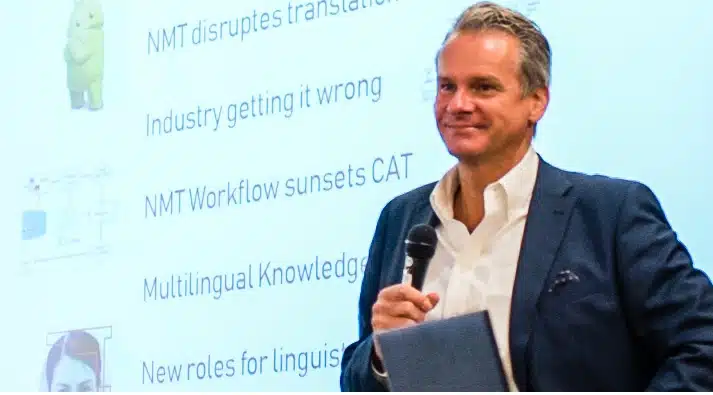Latest News
Latest News
-
Listen to and meet our CEO Jochen Hummel at several important conferences this fall. He starts on Sep 12 by giving the keynote at the plusmeta Knowledge Days (plusmeta got recently aquired by Quanos, his topic of Generative AI is crucial for all stakeholders in Tech Doc). The following week on Sep 22 Jochen talks about “LangOps in Industries” in the Language Intelligence track of Semantics/LTI Leipzig. Jumping from Germany to California, Jochen joins on Oct 10 industry experts in a Localization Institute round table discussing how language factories drive LLM deployment. Two days later Jochen moderates the LocWorld50 keynote panel on the threat, innovation, or myth…
-
After many years … starting originally in 2013 … we’ve revamped and relaunched our web site www.coreon.com. Based on a new web content management platform it allows us to publish more frequent updates and information on Coreon news, the events we are present and, of course, our product development. Our users and repository administrators will continue to find the application under https://app.coreon.com and the dashboard, the administration pages, under https://dashboard.coreon.com . Technologically, the latter is now carved out of the www pages.
